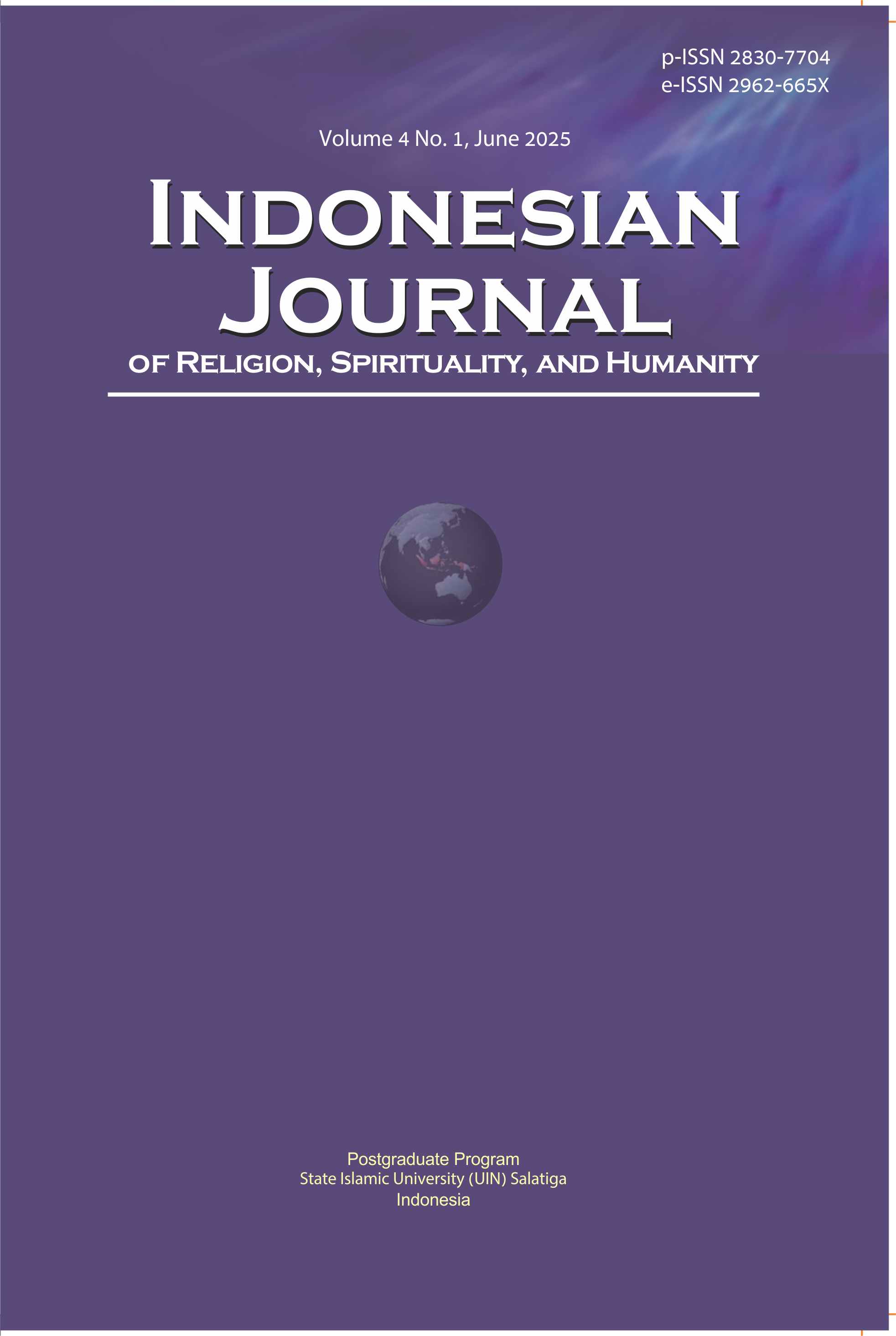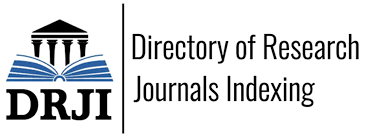Advocacy for Muslim women and children as victims of domestic violence in Central Java, Indonesia
DOI:
https://doi.org/10.18326/ijoresh.v4i1.108-133Keywords:
Advocacy, Domestic violence, Conflict theory, Maqasid al-shari’a, Muslim womenAbstract
This study is aimed at revealing the strategies of advocacy for Muslim women and children who become victims of domestic violence in Semarang, Central Java, Indonesia. This research was conducted at the ‘Legal Resources Centre for Gender Justice and Human Rights’ (LRC KJHAM) and the ‘Regional Technical Implementation Unit for the Protection of Women and Children’ (UPTD PPA). Data collection techniques include in-depth interviews and documentation. It employs two main theories, namely conflict theory and the maqasid al-shari’a (objectives of Islamic law). The results show that the advocacy efforts embrace complaint services, assessment, medical referrals, provision of safe houses, counselling, litigation and non-litigation legal assistance, empowerment, and policy advocacy. Based on conflict theory, a dialectic is found in domestic violence cases. This can be observed that male dominance in a patriarchal system represents a thesis, whilst rejection of violence as a violation of human rights and Islamic principles embodies an antithesis, and advocacy as a form of resolution serves as synthesis. Furthermore, from the perspective of maqasid al-shari’a, this advocacy aligns with the five essential objectives of Islamic law, namely, preservation of religion (ḥifẓ al-dīn) through strengthening faith; preservation of life (ḥifẓ al-nafs) through medical services and safe houses; preservation of lineage (ḥifẓ al-naśl) through child protection and legal aid; preservation of intellect (ḥifẓ al-‘aql) through counselling; and preservation of wealth (ḥifẓ al-māl) through economic empowerment. This paper argues that the advocacy provided in these two institutions is not merely legal-formal, but also reflects a broader effort for social transformation rooted in Islamic teachings.
References
Abdillah, L., Triyanto, T., & Sopar, S. (2024). Kajian komparatif perubahan sosial dalam perspektif Karl Marx dan Emile Durkheim. Jurnal Society: Pengamat Perubahan Sosial, 4(2), 57–67. https://jurnal.utu.ac.id/SOCIETY/article/view/11130
Akbar, M. F., & Rusyana, A. Y. (2022). Pemikiran ekonomi Ibnu Taimiyah dan Asy Syātibī dihubungkan dengan maqāṣid al syarīʿah. Al Hisāb: Jurnal Ekonomi Syariah, 2(2), 1–15. https://doi.org/10.59755/alhisab.v2i2.86 ejurnal.iainpare.ac.id+9
Al-Shatibi A.I. (1997). Al-Muwafaqat fi ushul al-shari’ah. Beirut: Dar Al-Ma’arifat.
Bogat, G. A., Levendosky, A. A., & Cochran, K. (2023). Developmental consequences of intimate partner violence on children. Annual Review of Clinical Psychology, 19, 303–329. https://doi.org/10.1146/annurev-clinpsy-072720-013634
Dalimunthe, M. A. (2024). Analysis maqasid al-shari’a on the impact of domestic violence in Law 23 of 2014 concerning the elimination of domestic violence. Ijtiḥād: Jurnal Hukum Islam dan Pranata Sosial, 40(1), 23–34
DP3A Semarang City. (2025). SERUNI: Reporting and handling strategies for violence against women in Semarang. Semarang City Government. Retrieved from https://dp3asemarang.go.id/seruni2025
Eckstein, J. (2018). The acoustics of argumentation and advocacy. Argumentation and Advocacy, 54(4), 261–269. https://doi.org/10.1080/10511431.2018.1525012
C. E. (2025, January 12). Personal interview.
Elfia, Shalihin, N., Surwati, Fajriyan, & Rahmat, A. (2024). Institutionalizing maqāsid ḥifẓ al-nasl within the Minangkabau inheritance framework. Ijtihad: Jurnal Wacana Hukum Islam dan Kemanusiaan, 24(2), 193–222. https://doi.org/10.18326/IJTIHAD.V24I2.193-222
Februa, D. R., & Supratiwi, S. (2025). Advokasi LSM LRC KJHAM dalam perlindungan perempuan korban kekerasan seksual di Kota Semarang. Journal of Politic and Government Studies, 14(2), 1310–1324. https://ejournal3.undip.ac.id/index.php/jpgs/article/view/50326
Fitria, M. (2024). The actualization of maqashid Shariah for gender equality in the modern era. ICSIS Proceedings, 1, Article 10. https://icsisproceedings.org/index.php/icsis/article/view/10
Holtmaat, R. (2013). The CEDAW: A holistic approach to women’s equality and freedom. In A. Hellum & H. Sinding-Aasen (Eds.), Women’s human rights: CEDAW in international, regional and national law (pp. 106–128). Cambridge University Press.
Horney, J. A., Fleury Steiner, R., Camphausen, L. C., Wells, S. A., & Miller, S. L. (2023). Characterizing the impacts of public health control measures on domestic violence services: Qualitative interviews with domestic violence coalition leaders. BMC Public Health, 23(1), 1–7. https://doi.org/10.1186/s12889-023-16471-4
Khaliq, M. N., Pangestu, A., Islam, U., & Sunan, N. (2025). Teori maqasid syari’ah klasik (Al-syatibi). Jurnal Risalah: Jurnal Ilmu Syariah dan Hukum, 11(1), 149–162. https://jurnal.faiunwir.ac.id/index.phpJurnal_Risalah/article/view/1330
Klasen, L. V., & Miller, V. (2002). A new weave of power, people, and politics. Practical Action Publishing.
Levin, L., & Bhatti, C. (2024). The role of dental professionals in identifying, reporting, and supporting domestic violence victims. Dental Traumatology, 40(S2), 3–9. https://doi.org/10.1111/edt.12897
N. L. (2025, May 19). Personal interview.
Marx, K. (1954). Das Capital: Vol. I. Morcow: Progress Publisher.
Marx, K., & Engels, F. (1872). Manifesto of the communist party. London: Rowland Literature.
Ministry of Women Empowerment and Child Protection of the Republic of Indonesia. (2025). SIMFONI PPA (Online Information System for the Protection of Women and Children). Retrieved July 23, 2025, from https://kekerasan.kemenpppa.go.id
Nelli, J., & Syahrizan, M. (2024). Analisis hukum Islam terhadap kekerasan dalam rumah tangga dalam perspektif maqashid syariah. Jurnal Bertuah: Jurnal Ilmu Syariah dan Hukum Islam, 5(2), 322–340. https://ejournal.kampusmelayu.ac.id/index.php/Bertuah/article/view/960
N.M. (2025, April 8). Personal interview.
Nnawulezi, N. (2022). Identifying and responding to the complex needs of domestic violence housing practitioners at the onset of the COVID 19 pandemic. Journal of Interpersonal Violence, 37(3–4), 915–925.
Nugroho, A.C. (2021). Teori utama sosiologi komunikasi (fungsionalisme struktural, teori konflik, interaksi simbolik). Majalah Ilmiah Semi Populer Komunikasi Massa, 2(2), 185–194.
Pertiwi, T. D., & Herianingrum, S. (2024). Menggali konsep maqashid syariah: Perspektif pemikiran tokoh Islam. Jurnal Ilmiah Ekonomi Islam, 10(1), 807–820. https://doi.org/10.29040/jiei.v10i1.12386
Prayogi, A., Nasrullah, R., Setiawan, S., & Setyawan, M. A. (2025). Konsep konflik dan teori konflik sosial dalam pemikiran Karl Marx. SiNORA, 1(1), 1–11. https://journal.forikami.com/index.php/nusantara/article/view/936
Purnamasari, C. (2021). Faktor-faktor pertengkaran antara suami dan istri di dalam rumah tangga serta pemicunya. Communications: Jurnal Komunikasi, 3(1), 45–58.
Rossevelt, F. A. (2023). Analisis Pengaruh Budaya Patriarki terhadap kekerasan Perempuan di dalam Rumah Tangga. Sajjana: Public Administration Review.
Samadani, A. (2013). Kompeten pengadilan agama terhadap tindak kekerasan dalam rumah tangga. Graha Ilmu.
Shafia, L., & Kamil, A. (2024). Collaboration between government and civil society towards handling sexual violence cases in Semarang City 2023. Journal of Politic and Government Studies, 13(3), 727–745.
Sofiani, T. (2021). Access to justice for victims of dating violence: Gender perspective. Sawwa: Jurnal Studi Gender, 16(1), 59–84. https://doi.org/10.21580/sa.v16i1.5143
Umanailo, M. C. B. (2019). Pemikiran-pemikiran Karl Marx. OSF Preprints. https://doi.org/10.31219/osf.io/5q2ts
Unsicker, J. (2012). Confronting power: The practice of policy advocacy. San Francisco, CA: Jossey-Bass.
E. C. (2025, March 3). Personal interview.
Wilson, J. M., & Goodman, L. A. (2021). “A community of survivors”: A grounded theory of organizational support for survivor-advocates in domestic violence agencies. Violence Against Women, 27(14), 2664–2686. https://doi.org/10.1177/1077801220981143
Downloads
Published
How to Cite
Issue
Section
License
Copyright (c) 2025 Muhammad Ulinnuha, Asfa Widiyanto

This work is licensed under a Creative Commons Attribution-ShareAlike 4.0 International License.
Copyright
Authors who publish with Indonesian Journal of Religion, Spirituality, and Humanity agree to the following terms:
- Authors retain copyright and grant the journal right of first publication with the work simultaneously licensed under a Creative Commons Attribution License (CC BY-SA 4.0)that allows others to share the work with an acknowledgement of the work's authorship and initial publication in this journal.
- Authors have the right to enter into separate, additional contractual arrangements for the non-exclusive distribution of the journal's published version of the work (e.g., post it to an institutional repository or publish it in a book), with an acknowledgment of its initial publication in this journal.
- Authors are permitted and encouraged to post their work online (e.g., in institutional repositories or on their website) prior to and during the submission process, as it can lead to productive exchanges, as well as earlier and greater citation of published work.
Licensing
This work is licensed under a Creative Commons Attribution-ShareAlike 4.0 International License.









